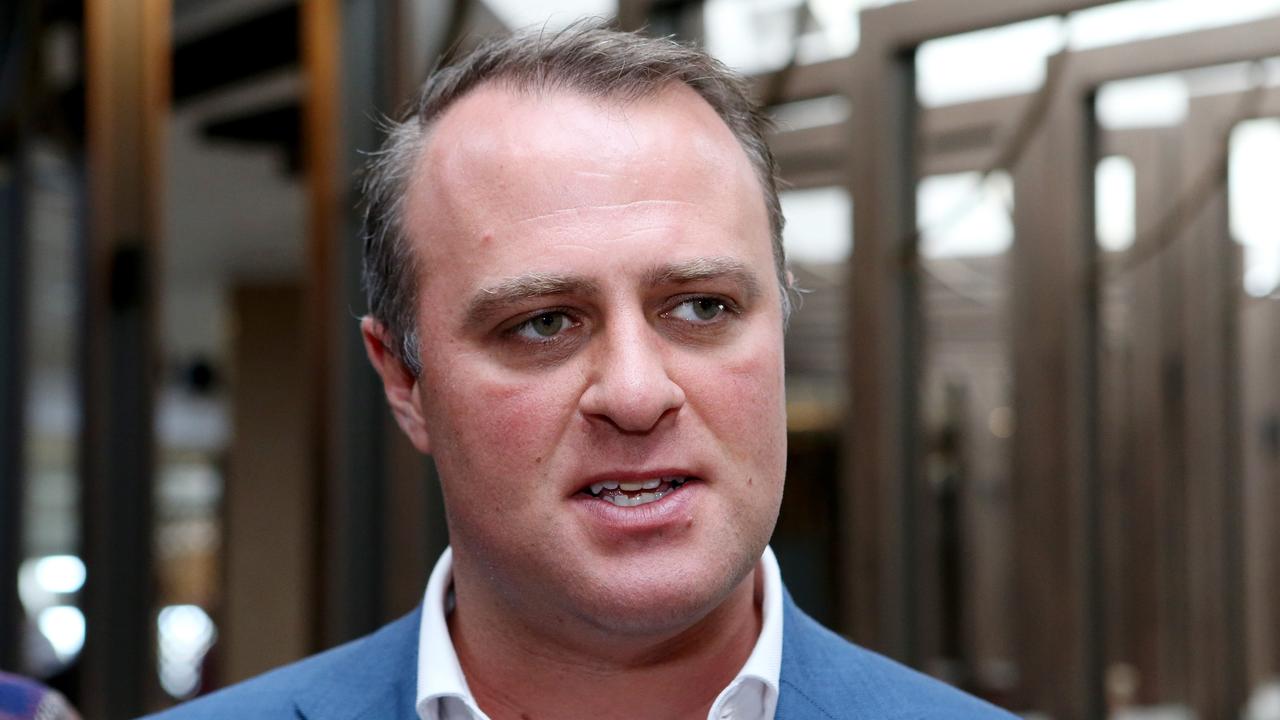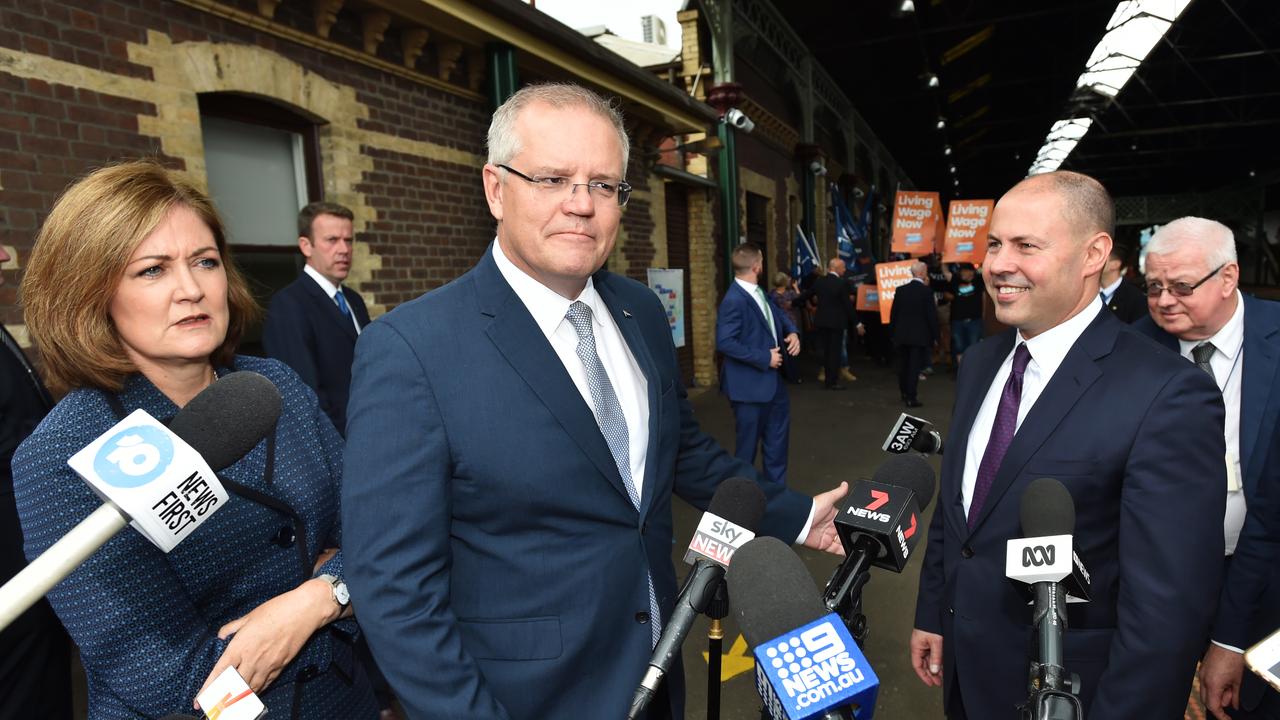$30bn boost for Turnbull’s tax reform plan
Treasury warns of failing to respond to global tax cuts and says the Coalition’s company tax plan will deliver a $30bn return to the budget.

The full rollout of the Turnbull government’s company tax plan will deliver a $30 billion revenue return to the federal budget, effectively halving the claimed total cost of the policy, according to an official Treasury report to be released today.
The report also warns that Australia could suffer a “permanent reduction in the level of GDP and real wages” if it fails to respond to the changing global tax environment — fuelled by Donald Trump’s renewed push to cut the US rate to 20 per cent.
The government is likely to seize on the official research report to try to shift the focus back to economic management, having seen its agenda derailed by the deepening citizenship scandal, which now threatens its slim parliamentary majority.
The report, obtained by The Australian, undermines Labor’s argument that the budget could not afford the full extent of the government’s tax cuts, while warning that a do-nothing approach would cripple Australia’s international competitiveness as other nations respond to the US move.
The report suggests the claimed $65bn price tag for full implementation of the Enterprise Tax Plan — to reduce the rate from 30 to 25 per cent for all businesses by 2026 — would be offset by up to $30bn in extra tax revenue back to the government due to increased economic activity. This effectively puts the cost of the plan at almost half of that being claimed by Labor, and until now not disputed by the government.
“Australian Treasury modelling estimates that the size of the Australian economy is expected to permanently grow by just over 1 per cent in the long term due to a five-percentage-point reduction in the Australian corporate tax rate,” the research paper says. “In the modelling scenario, the total revenue loss from the company tax cut that is recovered in the long run through increased economic growth is estimated to be around 45c per dollar of net company tax cut.”
The states’ budget positions, the report says, would also benefit, with 37c in the dollar returned to the commonwealth through income and corporate tax collections and 8c to the states through greater GST collections, due to the increased economic activity.
The government remains mired in the citizenship crisis, with Labor yesterday demanding MPs disclose their eligibility before parliament rises for the year, in a bid to force the government to deal with fresh scandals within weeks.
Labor also called for Liberal MP John Alexander to be referred to the High Court amid doubts over whether he holds British citizenship.
Mr Turnbull, who will meet Bill Shorten in Melbourne today to discuss his MPs’ disclosure proposal, said it was “obvious” a series of by-elections with negative results for the government “could have consequences” for his hold on power.
The government succeeded in passing the first phase of the tax cuts in March, with support from the crossbench, delivering a reduced rate of 27.5 per cent for companies with an annual turnover of up to $50 million over the next four years. This would eventually be reduced to 25 per cent. Mr Turnbull has said the government is still committed to legislating the full 10-year plan to lower company taxes, although this has no prospect of passing, with Labor, the Greens and the majority of the crossbench opposed to any further reductions. Opposition Treasury spokesman Chris Bowen has refused to rule out repealing the already legislated tax cuts for small and medium sized businesses.
The Treasury report warns that other countries have already been moving to lower their corporate tax environment, which would leave the Australian economy exposed, with the OECD average corporate income tax rate having dropped from 32 per cent in 2000 to 24 per cent today.
Canada has reduced its federal company tax rate from about 22 per cent to 15 per cent between 2006 and 2012. Singapore cut its rate from 20 per cent to 17 per cent between 2007 and 2010.
“Countries that further cut their tax rates in response to the US may avoid the negative impact that the US cuts would otherwise have on investment, GDP and wages, but will compound these impacts for countries that do not move their rates,” the report says.
“For example, if EU member states and Canada responded by cutting their own corporate tax rates, investment in these jurisdictions would pick up relative to doing nothing. While some of that investment may come from their own savings, it would also increase the pull on funds from the rest of the world. Such responses would increase the potential negative impact on investment in Australia.
“While the US would experience higher GDP and real wages as a result of this increased investment, other countries, including Australia, could experience a permanent reduction in the level of GDP and real wages.”
Scott Morrison said the report shone a light on the economic benefits of reducing the tax burden on businesses and included a dividend for taxpayers.
“For every $1 spent on delivering tax relief that will spur on our economy, the revenue generated by new business and increased investment returns 45 cents back to taxpayers,” the Treasurer said.
“This includes an 8c dividend for the states, in higher revenues, supporting our schools, hospitals and police. This dividend is the product of stronger growth in the economy — businesses responding to the tax burden being lifted off their shoulders by expanding their business, giving more Australian jobs and investing.
“Australia risks being left behind if we fail to give our businesses a competitive playing field. Bill Shorten’s refusal to support these changes will see these jobs, investment and wages go offshore.
“It is as simple and stark as that; Australia marooned on our own tax island while our major trading partners open the door to investment and reap the benefits, leaving us behind. Bill Shorten is the odd one out in a consensus of global leaders.”
The report cited lower or proposed lower tax environments in Britain, New Zealand, Norway, Israel, France and Japan.





To join the conversation, please log in. Don't have an account? Register
Join the conversation, you are commenting as Logout